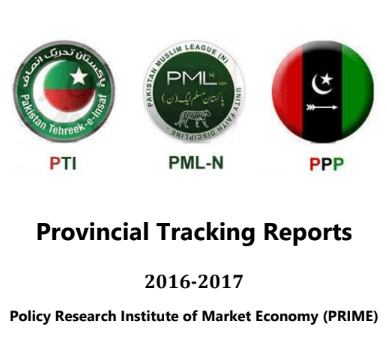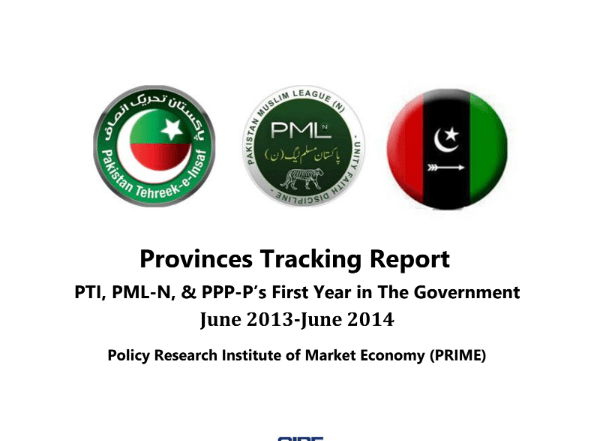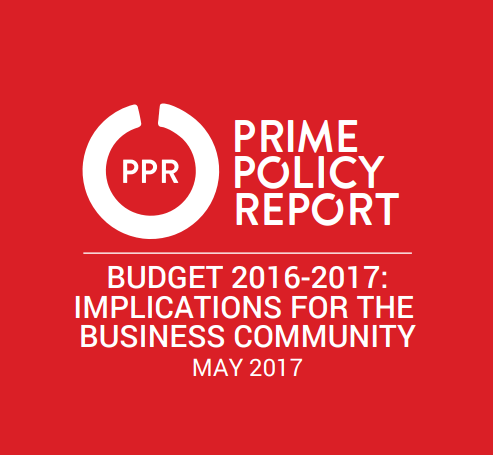Provincial Tracking Report reviews economic performance of three provinces, Khyber Pakhtunkhwa, Punjab and Sindh by tracking the progress made on the implementation of economic manifesto announced by the parties in power in these respective provinces i.e. Pakistan Tehreek-e-Insaaf (PTI), Pakistan Muslim League-Nawaz (PML-N) and Pakistan People’s Party-Parliamentarians (PPP-P). In case of Balochistan, the report includes a commentary on the socio-economic status of the province instead of following any manifesto
because of a mid-term change in the government. The purpose of the Provincial Tracking Report is to initiate and inform policy dialogue and public debate on the progress made by political parties vis-à-vis their electoral promises. This tracking directly serves the basic principle of a functioning democracy: accountability.
To read the full report or download for offline reading, click here: Provinces Tracking Report 2016-2017












